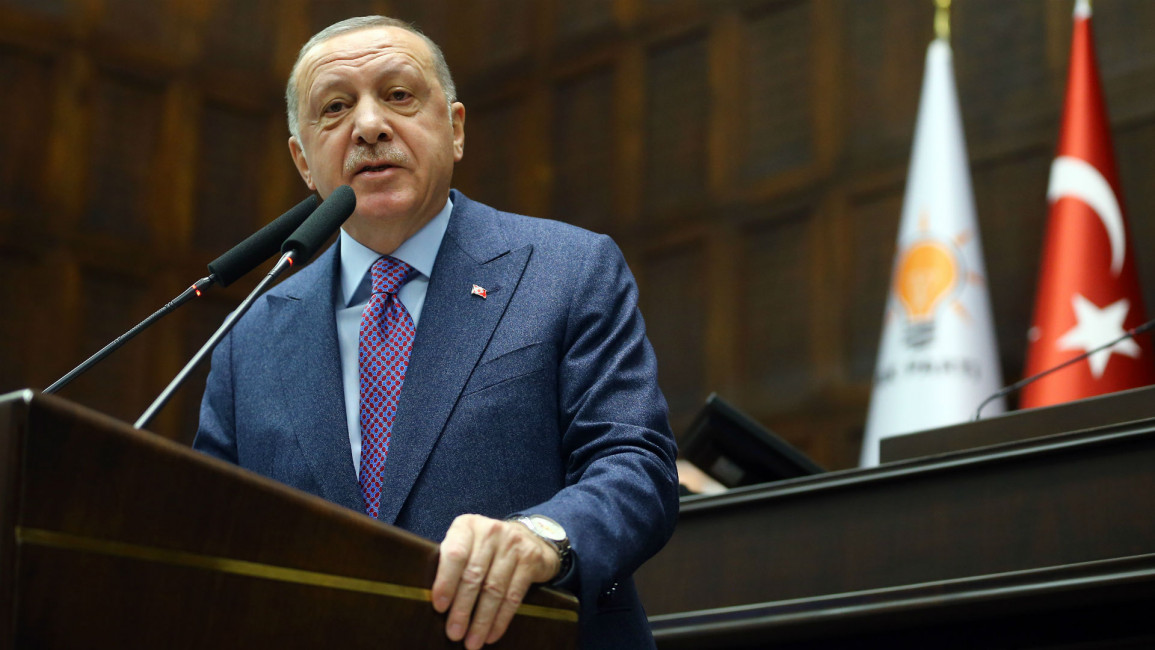Erdogan praises 'eternal brotherhood' with disaster-stricken Lebanon while making veiled jibes at 'parading' Macron
In a meeting of regional heads of his AK Party, the Turkish leader mentioned the visit of the country's Vice President Fuad Oktay and Foreign Minister Mevlut Cavusoglu to Beirut shortly after the devastating blast, saying that Turkish involvement was "based on eternal brotherhood ties" with Lebanon.
"We are not there to have our picture taken or parade in front of the cameras, as some do," Erdogan added, making a pointed dig at French President Emmanuel Macron, who also visited the site of the explosion shortly afterwards, and was followed around by a crowd of photographers, journalists and locals.
Macron's visit was hailed by many who pointed out that no senior Lebanese politicians had visited the site or spoken to locals in that time. However, his trip also prompted accusations of paternalism and neocolonialism, and by others as a photo opportunity with no real action behind it.
Erdogan added that Oktay and Cavusoglu were warmly welcomed in Beirut, demonstrating a close bond between the two peoples.
"The Lebanese people welcoming the official Turkish delegation, raising the Lebanese and Turkish flags and chanting, is evidence of the deep-rooted brotherhood between the two nations," he said.
Twitter Post
|
Erdogan added that Turkish disaster and emergency management teams as well as the Turkish Red Crescent have assisted the Lebanese authorities in search and rescue operations.
Turkey has also sent two aid packages to its disaster stricken neighbour, containing medical supplies and equipment.
Turkey has also pledged to provide citizenship to those in Lebanon who identify as Turkish or Turkmen.
At least 171 people were killed and over 6,000 injured after the explosion ripped through Beirut's port on 4 August.
The death toll is likely to rise as rescue teams make efforts to find the dozens of people still missing.
The material damage to the city is estimated at over $15 billion, with the extensive destruction rendering over 300,000 people homeless.
The disaster struck as Lebanon experiences its worst economic crisis, including a plummeting currency and dollar shortage.
Follow us on Facebook, Twitter and Instagram to stay connected


![President Pezeshkian has denounced Israel's attacks on Lebanon [Getty]](/sites/default/files/styles/image_684x385/public/2173482924.jpeg?h=a5f2f23a&itok=q3evVtko)



 Follow the Middle East's top stories in English at The New Arab on Google News
Follow the Middle East's top stories in English at The New Arab on Google News


